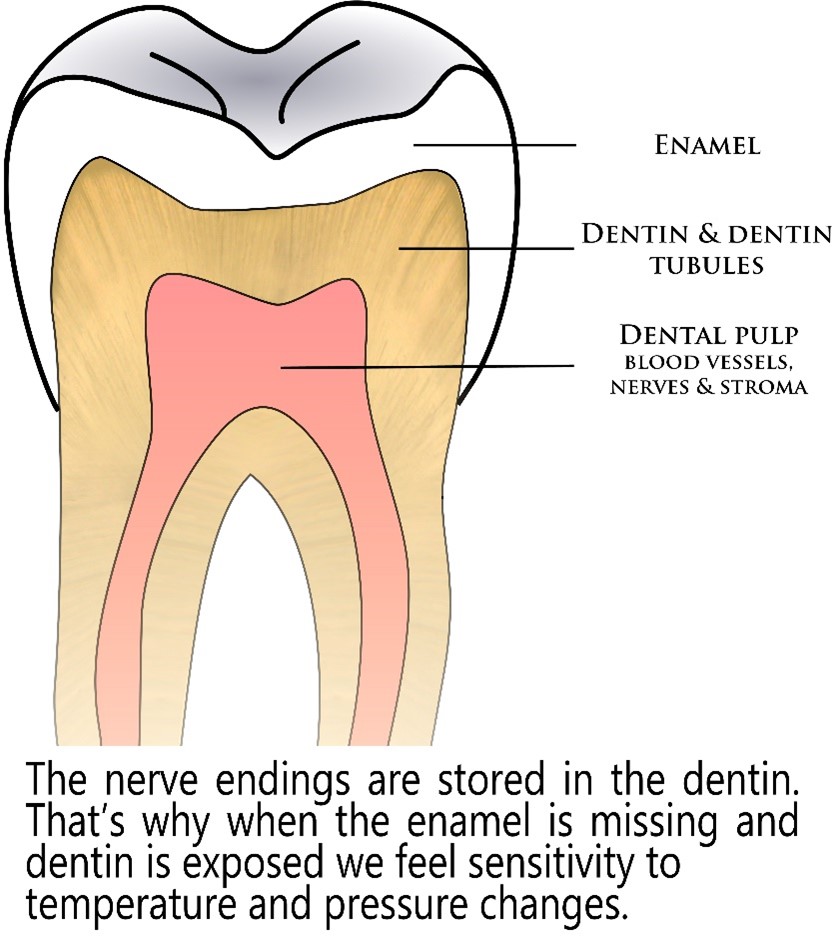
To better understand the problem, let’s take a look at the anatomy of a tooth. Right in the middle of the tooth is the pulp (in pink) where the nerve of the tooth is located. The pulp plays vital role in early age when the teeth are developing. In mature teeth, the pulp is simply a signal system to alert where there is something wrong. Being so important, the nerve is protected by two layers. The outside layer, called enamel is the strongest structure in the human body and acts as a shield for the tooth crown. It is very condensed and free of any sensation. That’s why cavities in very early stage are painless. The inside layer, dentin is built from small tubules, microscopic channels that travel from the pulp to the enamel border. This tubules are housing the nerve endings.
When new restoration is placed few things can get wrong:
- High spot on the new restoration causing a misaligned bite: After every new filling or crown placed in the mouth the dentist checks if the new restoration lines up properly with the rest of the teeth. However, being numb can interfere with your correct judgment and feeling. As a result, if the new tooth is even slightly higher than the rest, that puts extra pressure on it every time you close your mouth. If we chew each bite about 15-20 times, you do the math how many time the tooth gets a hit. So, no wonder that the tooth gets sensitive almost instantly. If you suspect that this is the reason. Do not wait for it to wear down on its own as the tooth may become tender. It is better to visit your dentist and have your bite adjusted. It is easy and will bring instant relief.
- Reversible nerve irritation, also called Reversible Pulpitis: Due to the vibrations during the tooth preparation and drilling off the decay, the nerve experiences a lot of turbulence that can cause temporary inflammation and slight swelling of the pulp. Considering that the pulp is in confined space the swelling causes pressure on the nerve which directly associates with temperature sensitivity and discomfort upon biting. The deeper the cavity, the higher the risk is for nerve irritation. Usually resolves on its own in few days to a week. OTC medicine and limit chewing on the side should help.
- Irreversible Pulpitis: Sometime the nerve gets so irritated that begins to die. It often happened when the decay is very deep and close to the nerve, or the tooth has undergone multiple fillings. Teeth with irreversible pulpitis start throbbing randomly and pain worsen with time. Usually, irreversible pulpitis will not have a complete relieve of the pain with OTC medications. The solution in this situation is a root canal treatment and sometimes antibiotics if infection spread in the surrounding bone.
In conclusion, fillings and crowns are a safe and effective way to treat dental cavities. Most will last you many years. Some sensitivity after getting a new restoration is common and expected. However, it is important to speak with a dentist if does not get improvement in a few weeks and especially if the pain is accompanied with fever or swelling.


